Holy post-PC era! Tablet shipments will surpass laptops this year

Quick, send a load of Valium to Intel and Microsoft executives! Gasp -- to Apple, too. Today NPD DisplaySearch forecasts that tablet shipments will exceed notebooks in 2013, globally. But in China and the United States, the milestone passed last year.
About 18 months ago, analysts started the smartphone-shipments-are-greater-than-PCs meme, which I didn't take too seriously. The market dynamics are different and handsets' functionally don't replace personal computers. Tablets are a whole other matter, because they can do just that. The category's rise over laptops is hugely significant.
At CES 2013, Steve Ballmer officially ushers in the post-PC era
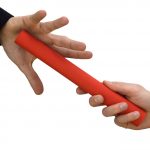
Steve Ballmer's surprise CES pre-show keynote appearance is shocking and full of symbolism. Ballmer goes from being star to minor player on one of the tech industry's most important stages. Stunned sums up my reaction, and I was sorry to see Microsoft's CEO there last night. The company officially pulled out of the Consumer Electronics Show this year, with Ballmer ceding the keynote he inherited from Bill Gates. Clean break would have been better than this.
I don't demean his time on stage, which actually livened a limping start. Qualcomm chief executive Paul Jacobs benefited from his keynote predecessor's Windows 8 presentation. My problem is Ballmer being there at all, for what his presence represents -- and there are a couple overlapping ways to read it.
5 things I don't want to see at CES 2013

In just a few hours, the Consumer Electronics Show kicks off in Las Vegas with the pre-show keynote. But the event already feels days old, with all the announcements and press galas already passed. That's the insanity -- so much going on that vendors fall over themselves to get out stuff early so as not to be lost in noise. There will be plenty. Earlier today, I identified 5 things I would like to see come out of Las Vegas this week. Now it's the don't wannas.
Honestly it's tough to keep the list to five, but I do so for consistency's sake, or change much from last year. Vendors are queued up to make the same mistakes as in the past, incurring wasted marketing costs they pass onto you the buyer. With that, I present, in no particular order of importance, 5 things I really don't want to see at CES 2013.
5 things I want to see at CES 2013
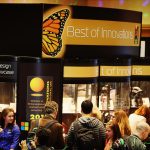
Tomorrow, the Consumer Electronics Show officially kicks off, not that many vendors are waiting. There already are plenty of Day 0 and -1 announcements, which make me wonder if this -- the first of two posts -- isn't already late: What I would like and not want to see during this year's big event. If early press galas are any indication, many CES participants won't hit the jackpot in Las Vegas this year. Sadly that's a trend.
Like 2012, I'm sitting out the tradeshow. The real benefit is mingling, and that's for everyone -- from journalists to manufacturers to distributors. CES really isn't about gadget geeks but everyday consumers and CE manufacturers getting goods to them. Why else would LG's press gala feature 39 new driers and 72 refrigerators coming this year? But the big noise is all about the toys today, as it will be all week.
App Store's 40 billion downloads doesn't take much away from CES
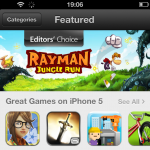
It's tradition. Consumer Electronics Show descends on Las Vegas. Apple doesn't attend but does something to steal some thunder. So it's no surprise that this morning the Cupertino, Calif.-based company announced 40 billion App Store downloads -- half in 2012 and 2 billion in December. That's surely impressive, but nowhere as near thunder stealing as some past years. C`mon, where are those strategically placed rumors that turn attention away from the big event?
In 2011: Mac App Store. Twice. A year earlier: iPad and in 2011, too. Who can forget iPhone in 2007, which literally stole the show. The trend is so assured, last year I asked (and answered): "Are this year's CES attendees afraid of Apple?" So far, in 2013, they have nothing to fear.
I hate CES, and you should too
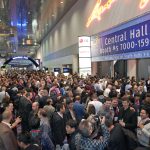
Consumer Electronics Show 2013 commences in about 24 hours with the pre-show keynote. I won't be there, and wonder why you will be. Apple is right to be a perennial no show, and Microsoft demonstrated wisdom pulling out -- and this year giving up the coveted kick-off presentation. Tradeshows like this are dinosaurs. Where's the meteor -- the oh-so needed extinction-level event? To everyone inviting me to their CES booths and parties, perhaps now you understand why I didn't respond to your email.
I hate the Consumer Electronics Show and the tsunami of products crashing down in mass self-mutilation and destruction. Who needs them anyway? Will your life really be better because a new cell phone's screen is 0.1 inch larger? Or there's a new Google TV box just like the others, only from a different manufacturer? NPD says not. The analyst firm released data today that tickles my CES-loathing soul: According to surveys, 68 percent of US consumers are happy with the tech they've got. What they do care about: Tech that meets their, ah, digital lifestyle.
The FTC is right, Google isn't a dangerous monopoly

The US Federal Trade Commission decision to close the Google "search bias" investigation is absolutely in the best interest of consumers. On that point, I agree with agency Chairman Jon Leibowitz, who announced the findings during a January 3 press conference. The result isn't what many Google critics or competitors hoped for, or even what some in the news media expected. Journalists repeatedly probed on the investigation's closing during yesterday's Q&A. Many people view Google to be a monopoly, perhaps dangerous one, while others regard the search giant increasingly as gatekeeper to the Internet.
In response to journalist questions, Leibowitz said that anyone in his position wants to take on the career-making case, which inference is clear: Google isn't it. "The Commission exhaustively investigated allegations that Google unfairly manipulated its search engine results to harm its competitors, a practice known as search bias", he said yesterday. "The Commission has closed this investigation by a 5-0 vote", which is unanimous, by the way. The decision fits long-standing US legal principles about competition and protecting consumers. Perhaps the government learned lessons from its monopoly case against Microsoft, which, as I previously asserted, failed to achieve its goals.
What are the terms of Google's FTC settlement?

Earlier today, the US Federal Trade Commission announced closing its search bias antitrust investigation into Google. Chairman Jon Leibowitz says the nearly 20-month investigation "does not support a claim" and that commissioners reached a unanimous decision. However, they did find that Google caused consumer harm by pursuing patent litigation started by its Motorola Mobility subsidiary, and the search giant voluntarily made business practice changes affecting its core business.
Many competitors will find the FTC's decision to close the core antitrust investigation as little more than a slap on the wrist. However, Leibowitz contends that the agreement protects consumers and that commissioners found no overt search bias. In fact, the agency found the the most disturbing alleged practices are commonplace among other search providers, mitigating any potential consumer harm.
Google settles with the FTC
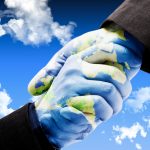
During a press conference early this afternoon, the Federal Trade Commission announced a sweeping settlement with Google that ends an ongoing antitrust investigation. But Google's legal woes aren't over. The European Union has set an imminent deadline for settlement there that otherwise will lead to sanctions. Still, on these shores, the search and information giant got a big pass today that is sure to send competitors howling (as some, Microsoft among them, did before today's agreement).
FTC Chairman Jon Leibowitz announced the settlement from the agency's Washington, D.C. headquarters. He describes the nearly 20-month investigation as "exhaustive", collecting "nine million pages of documents". The big claim against Google: That the company favors its own services over others -- so called "search bias". Leibowitz says the investigation "does not support a claim" and commissioners voted unanimously to close it. That said, Google agreed to stop scraping content from partners, such as Yelp, and to end contractual obligations that impede small businesses.
Microsoft counts down to what?
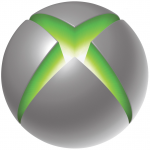
Perhaps you're thinking about Consumer Electronics Show 2013 and all the goody gadgets set there to debut. Microsoft isn't, having pulled out of the event (and that includes the big kick-off keynote). The company instead looks ahead to E3 in, ah, June, with Major Nelson (aka Larry Hryb) posting a countdown clock. Easy speculation is to the next Xbox, but don't choke up with excitement just yet.
CES keynote is exactly where Microsoft chief exec Steve Ballmer would unveil Xbox 720 (one of the rumored names), only to make everyone wait until November to get it. E3 debut simply means later announcement and likely holiday shipping, which is consistent timetable for Microsoft consumer products. When could you get Windows Phone, Xbox Kinect or Zune? Early November, baby. So consider that countdown clock just a wicked teaser -- like Lucy yanking the football out from Charlie Brown or Wile E. Coyote chasing the Road Runner off a cliff. Xbox 720, or whatever Microsoft calls it, won't be there in 158 days.
Will 2013 be another year of Apple iteration masquerading as innovation?
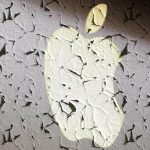
Apple ended 2012, Tim Cook's first full year as CEO, with a whimper. Analyst, blogger, reporter and social commentator puppy-love adoration gave way to persistent angst-questions about what's next and why the stock, which soared in September, soured through most of fourth quarter. Shares closed at $549.03, 22 percent down from the 52-week high. I can only describe 2012 as Apple's year of iteration and wonder where will be innovation this year. After all, the bitten-fruit logo company has a reputation to live up to.
By the financials, the Cupertino, Calif.-based company is the golden child. Starting in 2010, money poured in faster than the US Mint could print greenbacks. Apple takes in more cash than any other tech company ($156.51 billion during fiscal 2012), commands the largest market cap ($516.47 billion) and sits on a cash horde of at least $120 billion. But these capital gains come from past strategic investments, lucky timing (transition to the so-called post-PC era) and brilliant brand revival marketing and product execution. For the long haul, I predict that 2012 will be remembered as the year Apple stumbled -- as companies often do at the height of success -- and in this case following the tragic loss of its visionary cofounder.
Stupid bloggers misstate Windows 8 market share
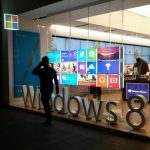
Yesterday, Net Applications released usage share data for December, although the number is widely reported today as being market share. It's not. Already, several blogs pulled out Windows 8 and Internet Explorer 10 stats, and their writers and story commenters draw conclusions about the operating system's early adoption. They're wrong to do so, and you'd be wise not to believe them.
NetApps culls its data from browser usage, which often isn't synonymous with operating systems. High usage of one browser can skew the data, which it does for mobile operating systems. For example, the data shows that in December, iOS mobile OS share (on phones and tablets) was 60.56 percent compared to Android's 22.1 percent. But, whoa, the numbers are similar for the Apple and Android browsers -- 60.13 percent and 24.6 percent, respectively. A quick read of NetApps mobile OS share suggests iOS is more than twice Android. That's not the case based on data from Apple, Google and analyst firms like comscore, Gartner, IDC and IHS iSuppli.
My tech life completely changed in 2012
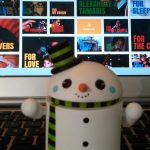
I join colleagues Mihaita Bamburic, Alan Buckingham and Wayne Williams recounting what tech I used in 2012. But unlike them, I made dramatic platform changes, more significant than first using Windows over New Years holiday 1994, buying a reburbished PowerBook in February 1999, adopting Facebook and Twitter in 2006 or purchasing Nexus One in January 2010. Each of these marked major platform changes -- and some not always lasting. Consider this: in early 2012, I owned a 1.8GHz Intel Core i7 MacBook Air, iPhone 4S and iPad 3. I end the year using Chromebook and Android smartphone and tablets.
During the year I moved from OS X and Windows running on Intel to an ARM-and-Chrome OS laptop, and after several failed attempts at adopting tablets (three generations of iPads, really), I embraced not one but two Android slates. I store all my data in the cloud -- local storage is now merely a way station between destinations rather than personal repository. This old dog is learning new tricks, and if I make such dramatic platform changes what does that mean for younger users who are more flexible and not as financially or habitually Apple/Microsoft/Intel committed? Look around, the PC era rapidly evaporates around you and its disappearance will be difficult to ignore in 2013.
Seven out of 10 will buy Surface Pro
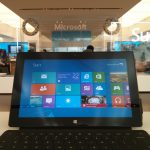
Twenty-six days ago I asked "Will you buy Microsoft Surface Pro?" after pricing released and pundits gripe it is too high. They compared to iPad, which I argued then (and still maintain) isn't right: Microsoft smartly prices Surface Pro against MacBook Air and Ultrabooks. But do you agree? Based on responses to the poll, yes.
Quick recap: Microsoft plans to release the second Surface tablet, running Windows 8 Pro, next month. The model available since October 26 runs Windows RT and is priced against iPad. Surface RT starts at $499. Pro is either $899 or $999 for 64GB or 128GB storage, respectively. Users can't install legacy apps on RT but they can on Surface Pro, which Microsoft positions more for business users and anyone needing access to the more traditional Windows desktop. The company also expects Pro buyers to pay up for Office 2013; the Home version ships free on Surface RT.
What I learned buying my daughter iPhone 5 for Christmas
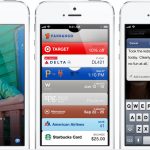
In June, I boycotted Apple and completely declared independence in July. But my disdain is personal, I respect other people's fruity tastes. Thus, I found myself inside Apple Store on December 23 ready to buy my daughter her big surprise Christmas gift: white iPhone 5. But I ended up purchasing from AT&T, which experience taught valuable lessons about iPhone gifting and what the carrier can and will do that Apple Store won't or can't.
Simply stated: I wanted iPhone 5 to be a surprise. That meant purchasing the device without activating to her phone number beforehand, thus walking out of the store with an unopened box, which seal she could break on Christmas morning. At Apple Store, one of the red shirts said no way. The phone couldn't leave the premises without being activated. "You could buy an Apple gift card for the same amount", he suggested. What's the surprise in that? Would you rather get the phone or the promise of one? Geez Louise.
Joe's Bio
Joe Wilcox is BetaNews executive editor. His motto: Change the rules. Joe is a former CNET News staff writer, JupiterResearch senior analyst, and Ziff Davis Enterprise Microsoft Watch editor.
Ethics Statement© 1998-2025 BetaNews, Inc. All Rights Reserved. Privacy Policy - Cookie Policy.
